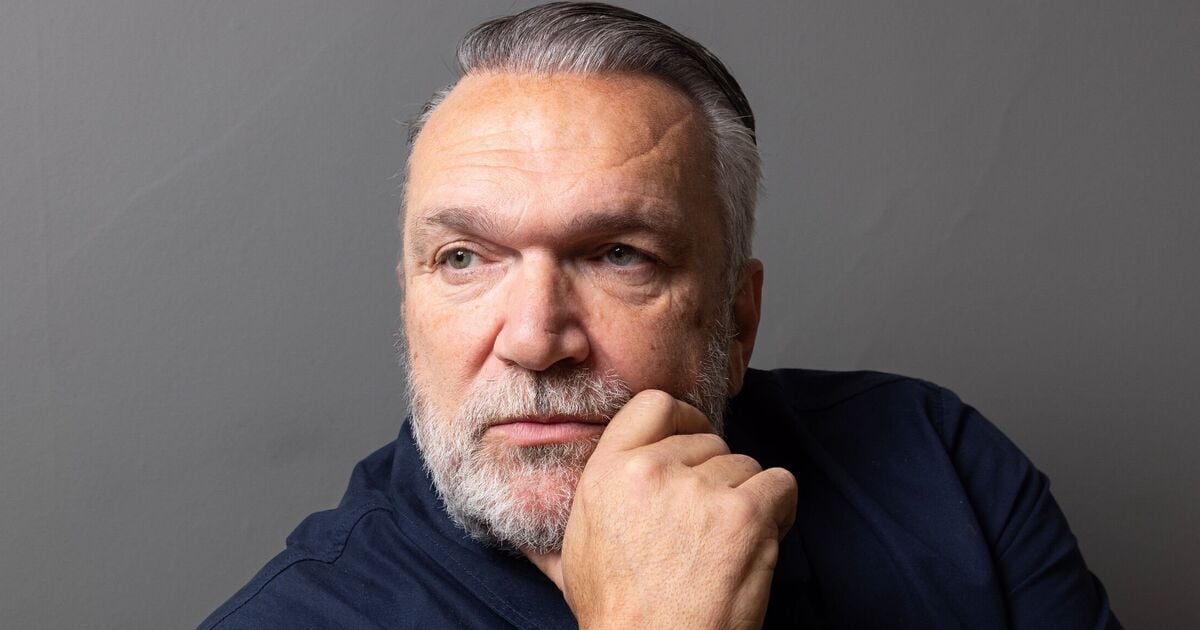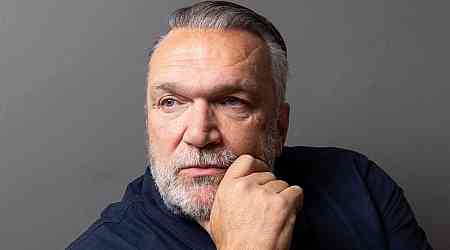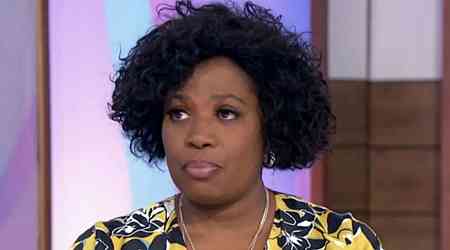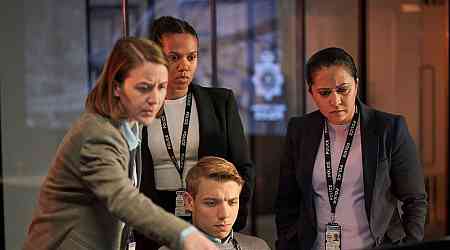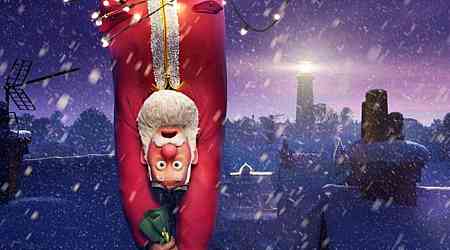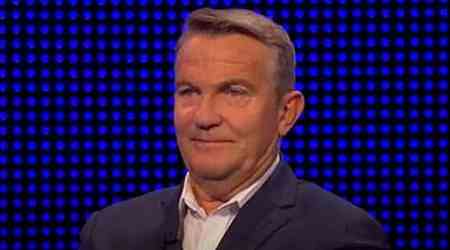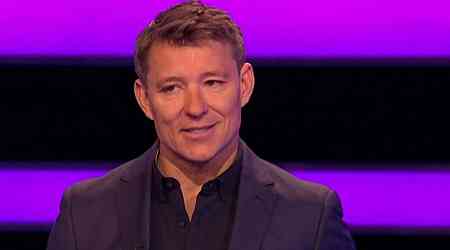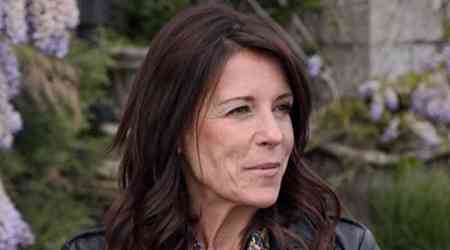
For three long years, Neil Ruddock never saw the top floor of his home. The soccer legend, nicknamed “Razor”, was pushing 27 stone and utterly exhausted, literally unable to climb two flights of stairs to his children’s bedrooms. Having seen his weight balloon after retiring from football and becoming addicted to junk food, Ruddock admits he had lost the will to live, despite wife Leah and their daughters Pebbles and Kizzy pleading with him to lose weight.
“Leah and the kids would tell me I was killing myself, but I’d given up,” he says. “I just couldn’t be bothered.
“Walking around hurt. I was tired. I swear this is true, but my house is three floors and I didn’t go to the top floor for three years. I never went up there because it was two flights of stairs. It was just too hard.”
Did the genial reality TV star ever consider taking his own life, I wonder?
“No,” he insists. “I wouldn’t have jumped off a bridge, but if I’d died in my sleep because I was so fat, it wouldn’t have bothered me. I’d given up.”
Thankfully, the fact we’re talking today about his extraordinary new memoir, Toxic, is proof he did pull himself out of his funk.
But as he reveals with a lot of laughter, swearing and humility, it was a damned close thing. Entertaining and inspiring, it’s a relentlessly frank read.
The 56-year-old former professional footballer – a big, tough defender who enjoyed spells at Liverpool, Millwall, West Ham, Spurs and Southampton, among others – was once renowned as the life and soul of the party, the jolly giant of countless dressing rooms. He was nicknamed the “Pied Piper” by his Liverpool boss Roy Evans for his ability to cajole teammates into merrymaking, and remains great company.
Yet post-football, even as he was killing himself with his bingeing on food and alcohol, his “Razor” persona was opening doors.
“If I wasn’t Razor, I wouldn’t have been on I’m A Celebrity, or gone into the Big Brother house or been on MasterChef, or be doing after dinner speaking. But behind the scenes, it was killing me basically,” admits the pundit and podcaster.
“It was like another person. I was a quiet kid but people wanted the Razor. You have to become a different person on the pitch. And when I was out, people expected me to be the life and soul of the party.”

Now wiser and calmer, Ruddock has no regrets. The Razor is still present, but dialled down in the mix.
“Experience and embarrassment are wasted on older people,” he smiles. “I’m 56 now and it doesn’t bother me. But 20 years ago, I wouldn’t have spoken about my problems. I still don’t like the word ‘depressed’. I was down in the dumps, I think.
“My greatest love was playing football and when, all of a sudden, you can’t do that any more, you get the buzz by getting drunk. Mad, bad, sad and glad – they’re the four emotions… then you go and have a drink and everything’s fine.”
Ruddock’s life, famously, was saved when, in 2019, he agreed to appear on ITV show Harry’s Heroes, which featured former manager Harry Redknapp trying to get a squad of England veterans into shape for a game against Germany’s legends.
The show included Ruddock’s stand-up row with fellow legend Paul Merson, no stranger to his own demons, telling him if he carried on this way, he’d be dead.
Hungover and depressed, Ruddock was in no mood to be lectured by his pal “Merse”.
But despite their bust-up, he writes in Toxic: “I knew he was telling the truth. There was also a bit of me thinking, ‘Hang on, you’ve been addicted to booze, gambling and cocaine and you’re telling me what to do.’ But of course, that was the whole point.”
Having collapsed in training, suffering frequent dizzy spells and exhaustion, Ruddock was finally taken to see a consultant who told him he might have as little as two months to live because he had the “heart of a 78-year-old man”.
Bizarrely, considering just how mixed up he was at the time, he saw the diagnosis as a cause for celebration, explaining: “I can laugh about it now but when I had the tests for Harry’s Heroes and the doctor said, ‘It’s not dementia, it’s your heart.’ I went, ‘Well thank f*** for that – what a result!’” Forever banging heads with “big ugly strikers” in his playing days, and known for heading the ball, he was aware that by then, half the England 1966 team had dementia. Nobby Stiles would die a year later, having been severely affected.

As it was, his heart was in overdrive, beating at a resting pace of 140bpm – equivalent to running a marathon – even while seated. Ruddock needed emergency surgery to zap it before it was restarted and a pacemaker was fitted to keep it steady.
Indeed, his blood pressure was so high that his consultant told him: “If someone put a hole in you, you’d be a human fountain.” Today, he reflects: “That show saved my life. I’d definitely be dead without it. It was a kick up the backside, but I still didn’t believe I needed to change. I’d given up by then, I couldn’t be a***d. But once you get like that, it’s hard to get out.”
The unexpected arrival of the Covid pandemic put Ruddock’s plans for a gastric sleeve operation on hold.
Confined indoors, he slobbed out on his sofa with food delivery apps for company as his weight ballooned to 27 stone. Soon, the formerly super-fit player could barely walk without becoming breathless and exhausted.
Examining the pictures in his book of the slim young man in a smart Burton-like jumper – “That’s a Giorgio Armani, actually,” he corrects me with a smile – just a few pages later he’s morbidly obese, belly hanging out.
He’d always been on the big side – often drinking heavily on a Thursday night and not eating, so dehydration would help him weigh less on a Friday before the weekend match.
But now his discipline was gone.
“Since the age of 16, I was always told where I’d got to be the next day, what I should wear and so on. All of a sudden, when I finished, I turned into a sort of 19-year-old.
“I’d always had lads around me. You go into the dressing room, you’ve got 35 lads every day. So where do you find that when you’re not playing? The pub!” Later, when he was working, Leah would pack healthy lunches, which she’d find uneaten in the back of his car, covered with fast food wrappings.
“I’d go to McDonalds, buy a Big Mac, eat one on the way home and then pretend I hadn’t eaten anything and have another one at home,” he admits. “I’d go to the fish and chip shop and have a spam fritter while I was waiting for our takeaway.”
Drinking was also a problem.
He estimates must have consumed an “Olympic-sized swimming pool of booze”.
However, today, Ruddock concedes he was lucky enough to be able to sink nine or ten pints, or several bottles of wine, without, on the whole, becoming obstreperous, aggressive or getting into trouble.
Finally, in September 2022, he had gastric sleeve surgery and the pounds began to slide off him. He now tells me his stomach is the “size of a baby’s” and he is, if not exactly skinny, then comfortable in his own skin.
He admits: “I’m still addicted to food, even though they took 70 per cent of my stomach away. I love great food, I just can’t eat a lot. I go to the Indian and order £30 of food, but I eat a fiver’s worth. I still get satisfaction from eating. I don’t think I’ll ever lose tthat.”
He’s sharing his story today, in part, to encourage discussion of male mental health. Blokes, he believes, find it hard to talk about this stuff. “Women go for coffees and talk things through. Men go to the pub and, after two beers, the problem’s gone,” he chortles.
While Toxic certainly feels like a confession, Ruddock doesn’t believe in therapy.
“Before I went into Celebrity Big Brother, we had to see a counsellor. Everyone went in for an hour and a half. I was the last in, I had five minutes with the fella and he says, ‘Okay, you’re alright.’ I thought, ‘What a load of b******s.’”

Yet one imagines a psychologist would have a field day over his Sliding Doors moment, the point at which he believes his life went awry – the 1996 FA Cup Final, when he was dropped by Liverpool at the last minute. Even 28 years later, the memory is still deeply painful.
“There’s always a turning point, something happens that makes people go a certain way. Mine was the ‘96 final when I didn’t play.”
Having performed well in the last six games of the season, and the quarter finals, Ruddock, then 28, believed he’d be a shoo-in for the team, only for manager Roy Evans to tell him at the eleventh hour he wasn’t playing.
“Friday night the gaffer came up to me and said, ‘I don’t know how to tell you.’ I went ‘Gaffer, no, no no…’,” he recalls. “It was my birthday, so I had a few drinks that night, got up the next day and went to Wembley. In the dressing room there was a fridge full of Stellas so I just started drinking. If I’d have done something wrong, if I’d turned up drunk or been late to training, I’d have understood the decision. But I’d done everything right. I just thought, ‘F*** it, what else can I do?’”
Liverpool lost 1-0 to United that day. Even now, Ruddock frowns as he relives the moment.
But thanks to his gastric op, and his recognition that “Razor” wasn’t always his own best friend, he’s no longer self-sabotaging.
Neil 'Razor' Ruddock promotes his news book 'Toxic'
Today Ruddock enjoys simple pleasures like driving his daughter to school, singing along in the car to pop music, and waking up to his cocker-Dalmatian puppies, Purdy and Harley.
So what’s the key piece of advice the man once branded Britain’s 17th hardest footballer has for us all?
“I can’t speak for others but put your family first, not your mates,” he says, looking me in the eye. “Your mates aren’t going to put you first. And... I’d rather be known as a bloke who sorted his life out than the 17th hardest player.”
It’s been a close shave, but he’s made it.
Toxic: Tackling ‘Razor’ And Finding The Real Me, by Neil Ruddock (Headline, £22) is out now. Visit expressbookshop.com or call Express Bookshop on 020 3176 3832. Free UK P&P on orders over £25



















